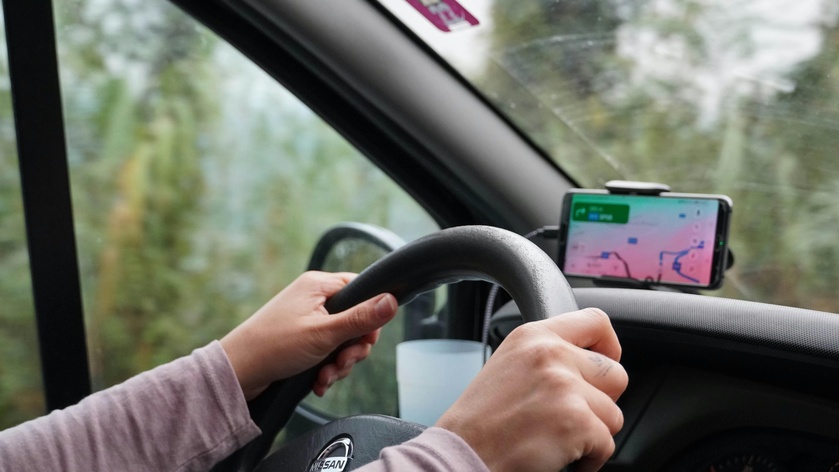
Rideshare services like Uber and Lyft have transformed transportation, offering convenience and affordability. However, with more rideshare vehicles on the road, accidents involving these services have become more common. If you're involved in a crash with a rideshare driver, you may wonder whether you can sue the rideshare company for damages. The answer depends on several factors, including liability, insurance coverage, and the circumstances of the accident.
Understanding Liability in Rideshare Accidents
Determining who is responsible for a rideshare accident can be complex. Unlike traditional taxi services, rideshare drivers are classified as independent contractors rather than employees. This distinction affects how liability is assigned in the event of an accident.
When Is the Rideshare Company Liable?
A rideshare company may be held liable for an accident under specific circumstances, including:
Negligent Hiring or Retention – If the company fails to properly vet a driver with a history of reckless driving or DUI convictions, they could be held responsible.
Technology Malfunctions – If an accident occurs due to issues with the rideshare app, such as navigation errors or system glitches that distract the driver, the company may be at fault.
Inadequate Safety Policies – If the company does not enforce reasonable safety measures, such as background checks or mandatory rest periods for drivers, it may bear liability.
When Is the Driver Solely Responsible?
In many cases, the individual driver is responsible for the accident. A rideshare driver may be liable if they were:
Speeding or driving recklessly
Distracted by their phone or GPS
Driving under the influence
Violating traffic laws
If the driver is at fault, their personal auto insurance or the rideshare company’s liability coverage may apply, depending on their status at the time of the accident.
Rideshare Insurance Coverage: Who Pays for Damages?
Rideshare companies provide different levels of insurance coverage depending on when an accident occurs. Understanding these coverage tiers is crucial when pursuing compensation.
Period 0: Driver Is Offline or Not Logged Into the App
If the driver is not using the rideshare app at the time of the accident, the company's insurance does not apply. In this case, the driver's personal auto insurance policy is responsible for covering any damages.
Period 1: Driver Is Logged In but Has Not Accepted a Ride Request
When a driver is logged into the app but has not yet accepted a ride request, the rideshare company typically provides limited liability coverage. For Uber and Lyft, this usually includes:
$50,000 per person for bodily injury
$100,000 per accident for bodily injury
$25,000 for property damage
Period 2: Driver Has Accepted a Ride Request and Is En Route to Pick Up a Passenger
Once a driver accepts a ride request and is on their way to pick up a passenger, the rideshare company’s insurance coverage increases significantly. During this period, Uber and Lyft provide:
$1 million in third-party liability coverage
Contingent collision and comprehensive coverage if the driver has their own policy with these coverages
Period 3: Passenger Is in the Vehicle
From the moment a passenger enters the vehicle until they are dropped off, the highest level of coverage applies. This includes:
$1 million in liability coverage
Uninsured/underinsured motorist coverage
Contingent collision and comprehensive coverage
Steps to Take After a Rideshare Accident
If you are involved in a rideshare accident, taking the right steps can help protect your legal rights and improve your chances of obtaining compensation.
1. Seek Medical Attention
Your health and safety should be your top priority. Even if you don’t feel injured, some injuries, like whiplash or internal trauma, may not be immediately apparent.
2. Report the Accident
Notify law enforcement and obtain an official accident report. If you were a passenger, also report the accident through the rideshare company’s app.
3. Gather Evidence
Document the accident scene by taking photos of vehicle damage, road conditions, and any visible injuries. Collect contact information from witnesses and involved parties.
4. Contact an Attorney
Rideshare accidents often involve multiple insurance companies, making the claims process complicated. An experienced attorney can help you navigate the legal system and fight for fair compensation. If you need legal assistance, you may consider seeking guidance from a qualified rideshare accident lawyer.
Can You File a Lawsuit Against a Rideshare Company?
Suing a rideshare company directly is challenging due to the independent contractor status of its drivers. However, there are situations where legal action against the company may be possible.
When Can You Sue a Rideshare Company?
You may have grounds for a lawsuit against a rideshare company if:
The company failed to properly vet or train the driver
The app contributed to distracted driving or system errors
The company’s insurance provider wrongfully denies a valid claim
Alternative Legal Avenues
Even if you cannot sue the rideshare company directly, you may still seek compensation through:
The driver’s personal insurance policy
The rideshare company’s insurance coverage
A claim against a third party (e.g., another driver involved in the accident)
Rideshare Accidents and Public Safety
The rise of rideshare services has prompted concerns about road safety. According to the National Highway Traffic Safety Administration, traffic fatalities have increased in recent years, partly due to the growing number of rideshare vehicles. As ridesharing becomes more prevalent, legal and regulatory measures continue to evolve to ensure accountability and protect victims.
Conclusion
If you are involved in a rideshare accident, determining liability and securing compensation can be complex. While suing a rideshare company directly is difficult, there are other legal options available. Understanding insurance coverage, gathering evidence, and consulting with an experienced attorney can help you navigate the claims process effectively. If you need professional legal assistance, The Insurance Outlaw can provide guidance on your rights and potential legal remedies.



















